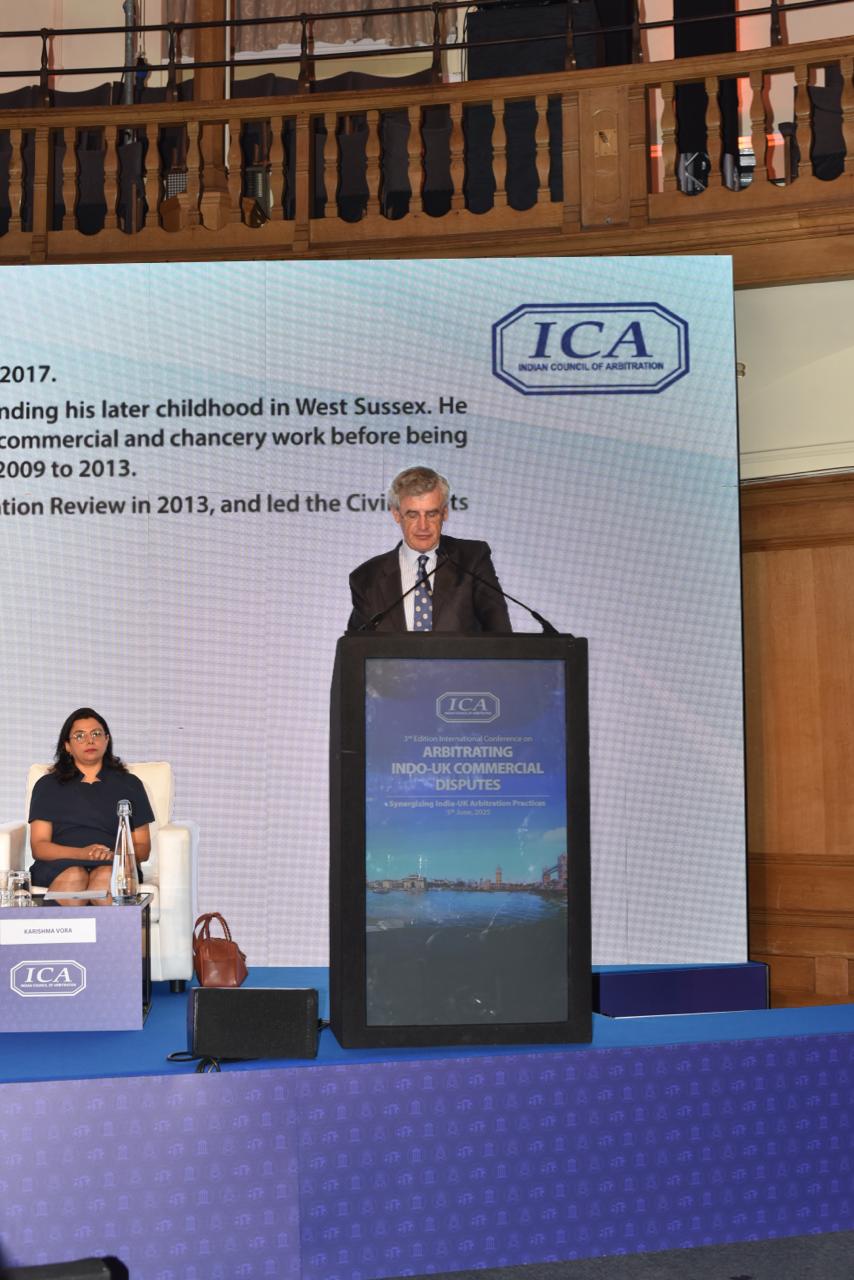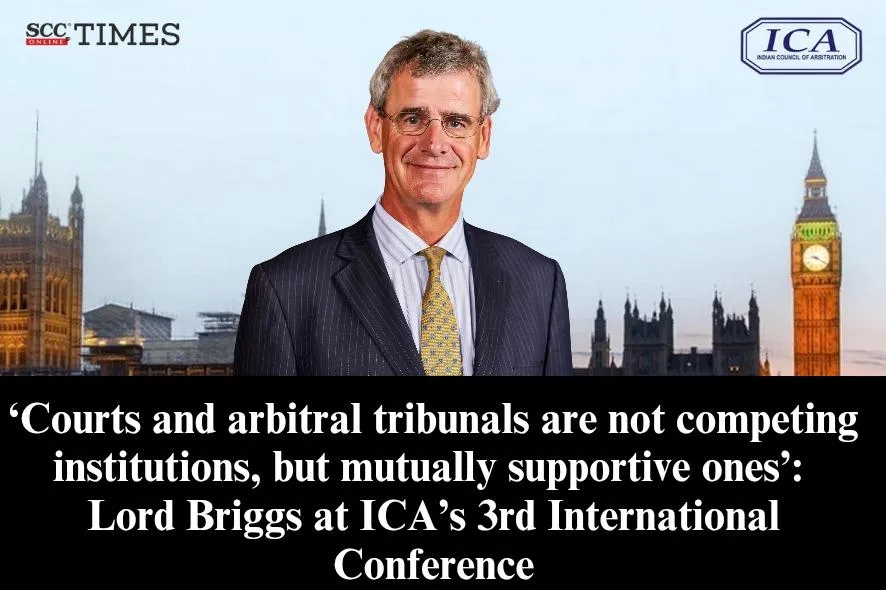The 3rd International Conference on ‘Arbitrating Indo-UK Commercial Disputes’ on the theme ‘Synergizing India-UK Arbitration Practices’ took place on 5-06-2025. Organised by the Indian Council of Arbitration (ICA), the event drew prominent legal minds from both countries to engage in dialogue on enhancing arbitration frameworks and fostering cross-border cooperation. The conference served as a pivotal platform for deepening the arbitration dialogue between India and the UK.
The Rt Hon Lord Michael Briggs of Westbourne, Judge, Supreme Court of the UK, delivered the keynote address. He opened by highlighting the timeliness of the conference considering the recently signed India-UK trade agreement, observing:
“The recent signing of an India-UK trade agreement makes this a good time to have a celebratory look at the relationship between courts and arbitration in the pathway.”

He undertook a comparative analysis of the statutory frameworks in both countries, noting both convergence and divergence. He suggested that both are based on the UN model law. Each is centred on the 1996 Act. But the Arbitration and Conciliation Act, 1996 appears to have no real equivalent to the English Arbitration Act.
Common Law, ADR, and Mutual Reinforcement
Lord Briggs reaffirmed the historic role of common law in supporting alternative dispute resolution, tracing its lineage through iconic judgments and jurists:
“Common law has, for centuries, recognised the right to a fair and erudite court… At the same time, methods of alternative dispute resolution… have long been not only tolerated but actively encouraged.”
While underscoring a landmark shift in the judiciary’s role in promoting mediation, he said that it has now been established in English law that the courts cannot only encourage parties to engage in forms of ADR, but the court can actually order them to do so.
Provided, this does not infringe the parties’ rights to a fair and erudite court, if the mediation process fails to reflect a settlement.
While arbitration may appear at first to be “treading on the toes” of courts, he clarified, “Courts and arbitral tribunals are not competing institutions, but mutually supportive ones.”
Confidentiality, Public Law Development & Judicial Insight
Lord Briggs raised concerns regarding the opacity of arbitration proceedings and its effect on the growth of common law jurisprudence, stating that, if that trend continues and expands, then the common law may become impoverished, with all the real legal action taking place behind closed doors, unless the practice can be developed of arbitral awards being published in an appropriately redacted form.
He acknowledged former Lord Chief Justice Lord Thomas for voicing similar apprehensions and stressed the importance of balancing confidentiality with transparency to preserve doctrinal evolution.
Judicial Developments and Legislative Efforts from India and the UK
Lord Briggs referenced two key judicial developments shaping the court-arbitration relationship:
- India — Gayatri Balasamy v. ISG Novasoft Technologies Ltd., 2025 SCC OnLine SC 986 Interpreting Section 34, he quoted the Supreme Court’s justification for limited judicial modification of arbitral awards:
“To deny courts the authority to modify an award… would defeat the raison d’être of arbitration… particularly in India, where applications under Section 34 and appeals under Section 37 often may appear to be resolved.”
- UK — British Council Case
Explaining the courts’ approach to winding-up proceedings vis-à-vis arbitration, he said, “The presentation of a winding-up provision… is simply not something which the creditor has agreed not to do.”
He explained that both judgments highlight a shared judicial effort to protect arbitration while regulating it sensibly.
Lord Briggs also touched upon ongoing legislative reforms. He pointed out that in the UK, the regime was recently amended by the Arbitration Act 2025. Section 6A provides a clear rule that the law governing the arbitration agreement will be the law of the seat. He compared this with India’s draft Arbitration and Mediation Amendment Bill 2024, which similarly strengthens references to the “seat of arbitration.”
Closing on a hopeful note, Lord Briggs emphasized the importance of international collaboration and judicial sensitivity. He remarked that, hopefully, that means that over time, both arbitration and litigation and the relationship between the two can only improve as each system progresses in a way that stimulates development of the other…and ideally, of course, that process will take place with best practices being shared via cross-border initiatives and conferences like this one.







